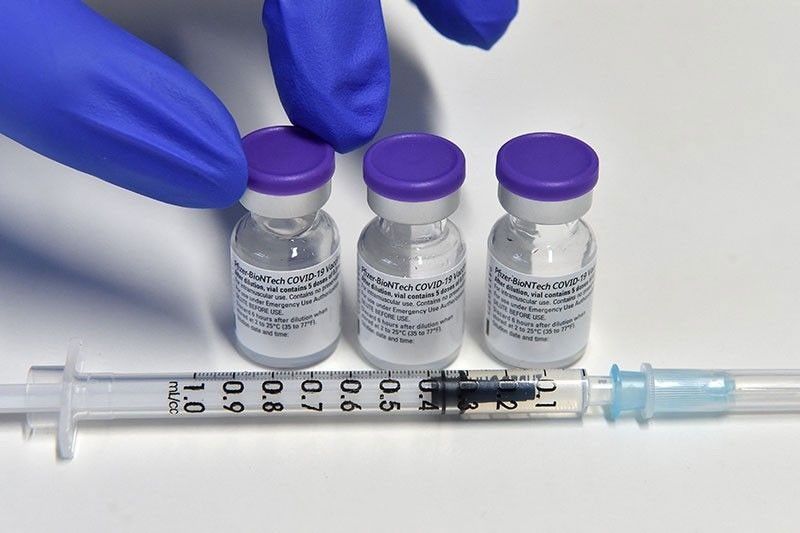Covid vaccines do not cause major menstrual issues: study

PARIS, France — Getting vaccinated against COVID-19 does not make women more likely to seek medical attention for menstrual problems, the largest study conducted on the subject said on Thursday.
Since coronavirus vaccination campaigns began nearly two and a half years ago, some women have reported changes in their menstrual cycle after getting the mRNA shots from Pfizer/BioNTech and Moderna.
This led to the European Union's drug watchdog recommending that heavy periods be listed as a possible side effect of the vaccines.
It has also been greatly exaggerated by anti-vaccine campaigners seeking to spread misinformation online about the supposed dangers of getting inoculated, according to experts.
The new study looked at patient data from Sweden's health registry which included nearly three million women, around 40 percent of the country's female population.
Rickard Ljung, a professor at the Swedish Medical Products Agency and lead author of the new study, said that it was "by far" the largest carried out on the issue.
It was also the first to use independent data on whether women contacted healthcare professionals over their menstrual problems, he said.
Previous research has used self-reported data — including information from apps that track periods — to indicate that some women have changes in their menstrual cycle after getting vaccinated.
Related: Considering getting a second COVID-19 booster shot? What you need to know
"What we show is that it does not seem that these (potential) disturbances are so severe that they have led to the women seeking medical attention," Ljung said.
The researchers acknowledged that self-reported data could include menstrual problems which were not quite bad enough for patients to seek help but were still "sufficiently disturbing."
They also pointed out that self-reported data can be "stimulated by media attention."
The study looked at first, second and third doses of the Pfizer, Moderna, and AstraZeneca vaccines in Swedish women aged 12-74 from December 2020 to February 2022.
For women who had not yet been through menopause, there was no link between vaccination and menstrual disturbances once variables had been adjusted for, the study said.
For post-menopausal women, there was a slight increase in seeking medical attention for menstrual problems after the third dose of Pfizer and Moderna's vaccine.
However, the study said the link between the two factors was "weak and inconsistent."
Overall, the study, published in the BMJ journal, said its "findings do not provide substantial support for a causal association" between coronavirus vaccines and seeking medical attention for menstrual or bleeding disorders.




















